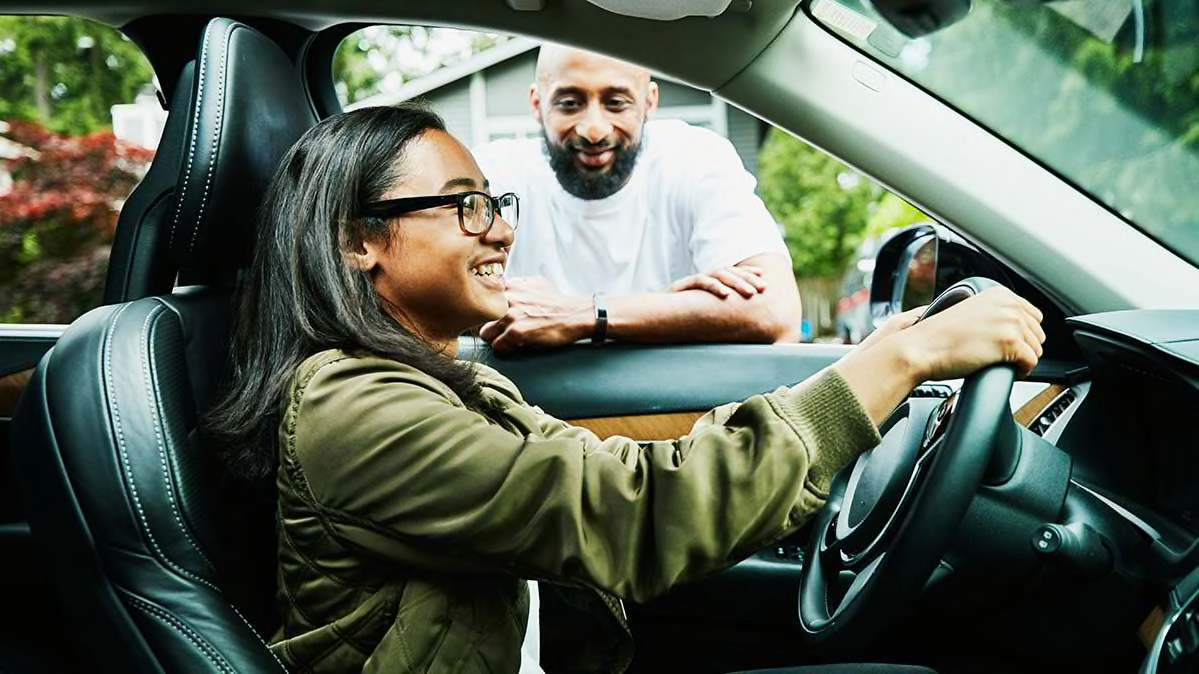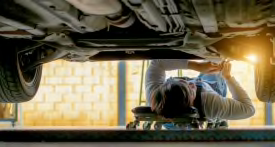
If your teen needs a car in high school or at college, you may be thinking about leasing a car instead of purchasing one. With monthly payments of about $100, a low-payment lease deal can be the perfect solution.
There are a number of benefits to leasing a car. With a lease, your teen can get a new car with the latest safety features, a full warranty, and affordable monthly payments. Leases are typically for two to three years, often the same amount of time that a college student may have parking access at school. While mileage restrictions on many leases can be a concern for commuters, students often stay local, so it's less of a problem.
And this time of year, many dealers have attractive offers. A local Kia dealer recently was offering a three-year lease on its 2018 Forte LX for $59 per month. The deal required an up-front payment of almost $2,800, so you could get a brand-new car for less than $5,000 (plus fees and taxes) for three years of use.
A Toyota dealer was offering a three-year lease on a 2018 Corolla iM for $119 per month, plus an up-front payment of $2,000. The total would come to just over $6,000 (plus fees and taxes).
Instead of leasing, you could buy a used car, but you would probably have to pay more up front—anywhere from $5,000 to $10,000—before factoring in insurance and maintenance, says Mel Yu, Consumer Reports' automotive analyst.
With an older car you would also be more likely to incur expenses for repairs. And a low-cost used car may not provide contemporary crash protection and advanced safety features that would greatly benefit a young driver.
You could choose to take out a loan to buy a car, but you'd pay more than if you lease a car of equivalent value. That's because with a loan, you're paying for the entire vehicle, which you'll own when you've paid off the loan. But with a lease, you're paying the amount of depreciation—the projected amount the car's value will drop during the lease period—and you have to surrender the car at the end of the lease period, says Jack Gillis, executive director at the Consumer Federation of America and author of "The Car Book."
If you're planning to lease a car, don't assume that any deal you find online is the best offer available. Ask the dealer to go over his top offers and then negotiate from there, Yu says. You should haggle on the vehicle price, and try negotiating such items as fees and the down payment. And if your teen is heading off to college, find out whether the automaker has a special incentive for college students, he says.
Additional Costs
While a car lease may make sense for your teen, you could be hit with some additional expenses.
- Leases could be a costly choice for young people, especially if they don't take care of the car and have dings from minor fender benders and stains on the upholstery, Gillis says. That's because leases hold the lessee responsible for any damage other than normal wear and tear to the vehicle. "The sticker shock will come at the end of the lease period if the teen has trashed the car," Gillis says.
- Many leases come with a limit of 12,000 miles per year. If your teen drives more than the lease allows, she'll be charged an overmileage fee that can be about 15 to 20 cents per mile. If she drives too little, she or you will have paid for more depreciation under the lease than she actually used, says Al Hearn, founder and president of LeaseGuide.com. If your teen needs more mileage than the lease deal allows, try negotiating for additional miles at no extra cost, Gillis says. In some cases, the mileage allowance can be extended up to 20,000 miles, Yu says. If that doesn't work, you might be able to increase the mileage in your lease by paying a prepaid rate, which would cost less than if you wait until the termination of the lease.
- If your child needs to terminate the lease early, you may have to pay the remaining payments and pay an early termination fee, among other penalties, Hearn says. However, you might get a waiver from these fees in certain situations, such as if you are trading in the vehicle for another or the car was totaled.
- Keep in mind that when the car lease is over, your adult child won't have a car. If she leases another new car, the total cost of back-to-back leases can be thousands of dollars more than simply buying a new car and holding on to it at least until the loan is paid off, Gillis says.
Teen Driving School
Want your teen to become a better driver? On the "Consumer 101" TV show, Consumer Reports expert Jen Stockburger explains the driving maneuvers and safety features that will help him or her do it.















